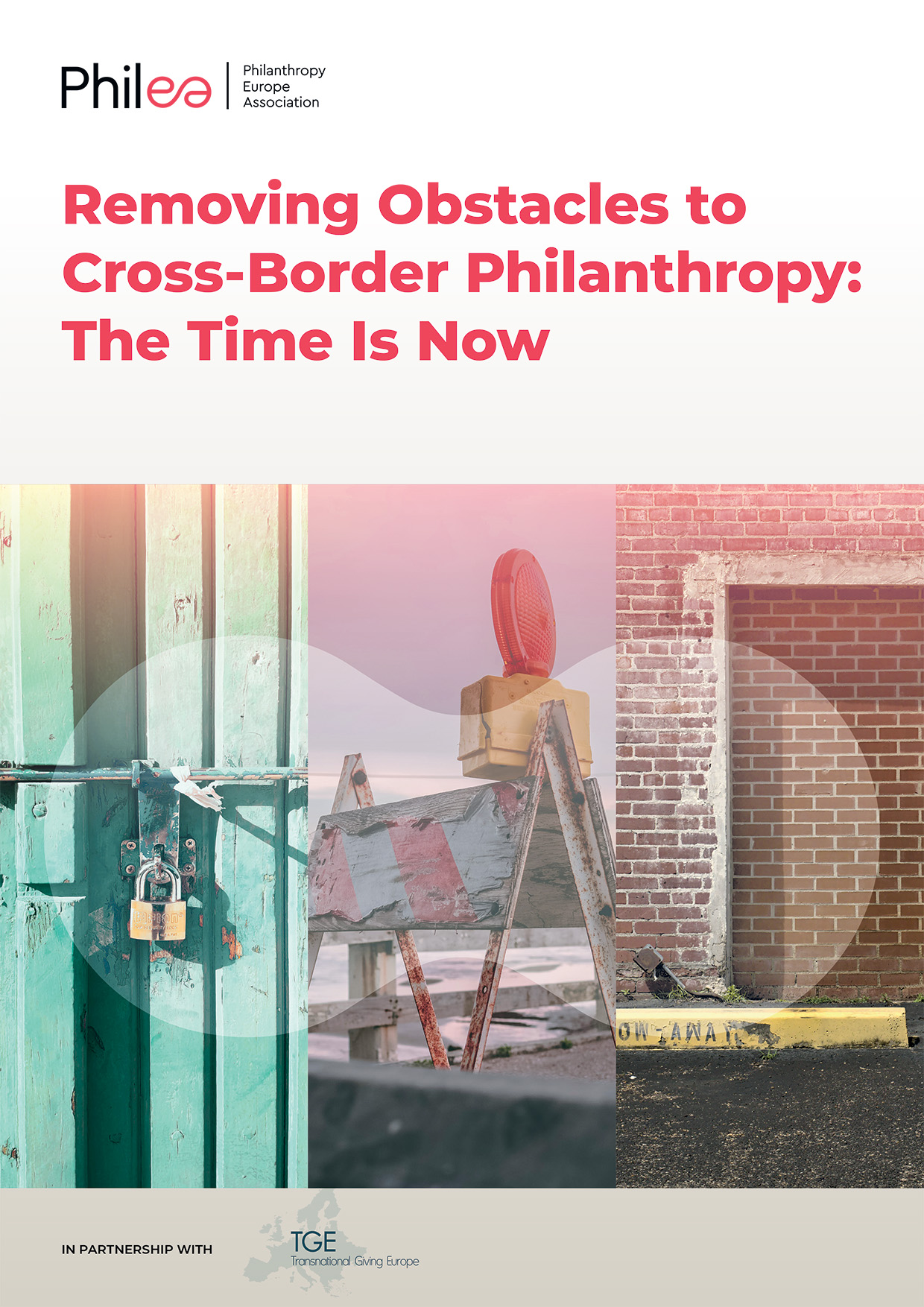Obstacles to cross-border philanthropy are real and the time to remove them is now
Brussels, 23 May 2024 – Today, Philea together with Transnational Giving Europe (TGE) published a collection of real cases of existing obstacles to cross-border philanthropy. “Removing Obstacles to Cross-Border Philanthropy; The Time Is Now” provides real-world examples of impacted foundations and donors, and delves into the broader legal and fiscal contexts behind each barrier. The publication also includes concrete recommendations to policymakers on this issue.
The six crucial areas where philanthropy faces difficulty in acting across borders are:
- Discriminatory tax treatment and complex procedures: Barriers related to donating and/or fundraising, or allocating assets across borders tax-effectively, exist across the EU.
- Difficulties in accessing banking services and transferring funds across borders.
- Lack of legal recognition of foreign foundations: Philanthropic organisations sometimes need to register or create a branch before they may operate in another country in Europe as the legal personality in their home country may not always be recognised abroad.
- Impossibility of cross-border merger of foundations: There are no regulations for carrying out a cross-border merger at EU level or at the level of most Member States.
- Burdensome process to transfer seat or perform a conversion across borders: There is no legal provision in most countries, nor at EU level, for shifting a philanthropic organisation’s headquarters across borders, so this process entails a high degree of legal uncertainty.
- Restrictions on foreign funding: Whereas philanthropic funding should flow freely within the internal market, according to the EU principle of free movement of capital, there is a worrying phenomenon of so-called foreign funding/foreign agent restrictions.
“Today we provide crucial evidence supporting our call to policymakers at EU and national levels to ensure that the philanthropy and foundation sector can operate freely across borders to be able to contribute towards a society that works for people and planet,” stated Delphine Moralis, Philea of CEO.
Philanthropy and philanthropic organisations are a critical part of our democratic and pluralistic societies. Institutional philanthropy in Europe includes more than 186,000 philanthropic organisations (data from 26 European countries) with an accumulated annual expenditure of over €54.5 billion (data from 24 countries), as well as millions of individual and corporate donors who donate to good causes. Philanthropic organisations and donors are increasingly working across borders and in collaboration with partners.
As the case studies in this publication show, barriers to cross-border philanthropy are real and deeply problematic, and addressing these obstacles is one of Philea’s key calls to action to policymakers in its European Philanthropy Manifesto.
These case studies offer a snapshot of the current hurdles facing the philanthropy landscape in Europe and can be read alongside the recent “Guide Towards a Single EU Market for Philanthropy”, published by the King Baudouin Foundation with several partners, including Philea, to provide guidance on navigating the registration processes in the 27 EU Member States.
View “Removing Obstacles to Cross-Border Philanthropy; The Time Is Now”
Contact


